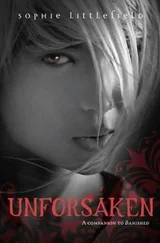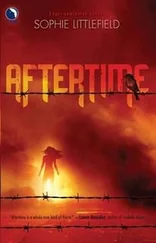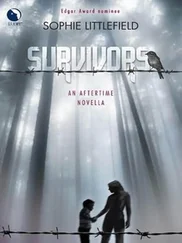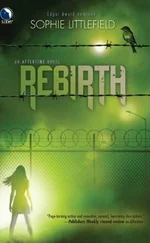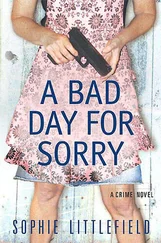“Not just the other morning, but ever. I mean, isn’t that kind of a strange coincidence, that he lived a few streets over all this time?”
“Worked. He worked near here. I have no idea where he lived. And after the war, lots of people from the camps went to the cities. Those newsletters that come here, half those people are living in San Francisco.”
Patty knew the newsletters her mother was talking about—stapled, folded affairs that her mother threw away without reading, the efforts of a group of former Manzanar internees who were trying to get what was left of the relocation center made into a memorial or a national monument. But Patty knew that Lucy would never seek those people out. She was a loner, content with her own company. It didn’t matter that they’d shared an experience, a moment in history. It seemed as though Lucy would much prefer to erase the past completely.
“Mother, we have to figure this out. Someone thinks they saw you there.”
For a moment Lucy looked as though she was going to say something—she bit her bottom lip and drew herself up in her seat—and then she merely got up and went to pour more tea. “It wasn’t me. I was here, getting ready for work. Like always.”
Like always, except that Patty had been asleep in the next room. She should have told the inspector that—that she had been here with her mother, that she’d confirm that at six o’clock Lucy’s alarm had gone off as it always did, that she couldn’t have been anywhere near the DeSoto because she’d been in the kitchen making tea.
Only she couldn’t actually say for certain what had happened in her mother’s little house until nearly ten, when she’d finally awoken to a throbbing headache and the sticky, foul taste of a hangover in her dry mouth. It had been the morning after her bachelorette party, scheduled midweek because that was when everyone could make it. Patty had had three glasses of champagne before switching to tequila and losing count—she may have still been a little drunk when she’d finally gotten up, honestly. A train could have barreled through her mother’s house and she would never have noticed.
“Just tell me this,” she said. “This man, Reginald Forrest, how did you know him?”
Lucy finished with her tea, pouring in the sugar and stirring until it was lukewarm, the way she liked it. “He had a job in the warehouses. All the supervisor positions—all the bosses—they were from the WRA. The War Relocation Authority. He was white, of course. He must have had a couple hundred men working for him, loading and unloading. The trucks came in every day—we used to watch them, us kids. We didn’t have a whole lot else to do.”
“That’s how you knew him? Just from hanging around the camp?”
Lucy shook her head impatiently. “No. There were ten thousand of us living there, a few hundred staff. It was like a small city. It was impossible to know everyone. But he was different. He was good-looking back then. He wanted to be an actor, before the war, and when they put on shows in camp, he would help out, direct and guest star. He coached baseball too. Everyone knew him.”
“Look, Mom...” Patty tried to keep the impatience out of her voice. “Maybe this is nothing, maybe they’ll go talk to his son or his girlfriend or whatever and figure out who did this. Or declare it a suicide or something. But we have to be ready in case they come back.”
It was the face, of course. There was simply no way to argue with someone who could describe Lucy’s face. Either her mother had been there or the janitor was lying. Both possibilities seemed absurd, but one had to be true. It was that simple. And Patty had to find out which—and why—before the detective did.
Maybe she could find this janitor, ask him questions. But as soon as she had the thought, Patty dismissed it. Why would a total stranger invent such a story?
Which left the other, far more uneasy possibility: that for reasons Patty couldn’t begin to fathom, Lucy not only knew Reginald Forrest worked nearby but had gone to see him on the morning he died. If someone really had killed the man, her mother likely knew something about it.
Patty watched Lucy unload clean dishes from the drainer and put them away. How could she think her own mother could have killed someone? She could not recall a single moment of violence or even uncontrolled anger—never a spanking, never an altercation with a stranger or at work, barely a raised voice during all Patty’s teen years.
But there was the dark history Lucy carried inside her and never shared. The horrors of the war years—being forced from her home and imprisoned, and then orphaned. Patty had never blamed her mother for trying to forget, but her secrecy had created a gulf between them nonetheless. It wasn’t her mother’s external scars that kept her outside Patty’s reach, but the ones on the inside. What if they’d finally scratched their way to the surface? What if, after all these years, her mother’s history had come back to haunt her?
* * *
After Lucy left for the grocery store, Patty rescheduled her appointment at the salon for the following week. The menu, flowers, place cards—all these details had been taken care of long ago. A chronic overplanner, Patty could coast all the way to the wedding if necessary, and everything would still run smoothly.
But none of that mattered anymore, anyway. She wanted to call Jay and tell him about the detective’s visit, but he was in Atlanta for business, some important client the firm was pitching, and the last thing he needed right now was for her to drag him into a mess that might well resolve itself in a day or two. He’d taken the red-eye Sunday just so he could take her and her mom to dinner to talk about wedding details, like how the ushers would seat the guests since his family was so much larger than hers, and who would walk Patty down the aisle since she had no one to give her away. He’d been so sweet that night—she couldn’t bear to interrupt his trip. It would wait until he was home.
With Lucy out of the house, Patty had a chance to collect her thoughts. She knew she wouldn’t get anywhere with her mother; anything she wanted to know about Reginald Forrest she would have to find out for herself.
She got the phone book from the hall table. Forrest, Reginald R.—there he was, plain as day. On Oliver Street, number 225½; Patty pulled out a map and discovered that he lived only eight blocks to the west, dipping into the Outer Sunset, not the best neighborhood. She pulled her hair into a ponytail and put on her running shorts and shoes. She was just going for a jog, she told herself; what could it hurt to just take a quick look at his house from the outside?
When she found the address, she was out of breath and perspiring. The lot was overgrown, fronted by a row of palms shedding dusty brown fronds all over the sidewalk. The house itself was half hidden behind misshapen shrubs and overhanging branches. She located the house numbers, the metal 5 upside down on its nail, and figured Forrest’s apartment must be in back.
Patty slowed to a walk and looked around; the street was empty. No one would notice, and she’d just duck in for a moment. The gate had lost its latch, but it squeaked as Patty pushed past, her feet crunching on dried leaves and pods.
A cracked and broken sidewalk led around the side of the house. Patty shoved branches aside and tried to be quiet. Someone could be home in the front of the house, despite its neglected appearance. She wondered if there ought to be police tape somewhere, draped across the door perhaps, or strung between tree trunks, but then again this was only where Forrest had lived, not where he died.
The backyard was tiny, a patch of dead grass separating the house from a leaning detached garage. Broken glass littered the garage window’s sash and glittered on the ground below. A trio of disintegrating beach chairs was arranged around a rusted hibachi. A bony cat streaked past with something twitching in its mouth.
Читать дальше



